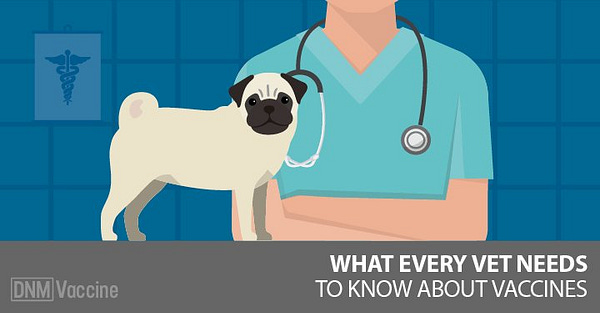Steve Kirsch raised an interesting question today - one that I wish more people would ask…
As it turns out, vaccine-injury is fairly common in pets. It is also more openly acknowledged.
This article begins by reminding pet owners that vaccination “is a decision best left up to you and your vet.” (so refreshing to read this!)
But before you discuss vaccination with your vet … read on to make sure you know the duration of immunity of those vaccines – and the potentially lethal consequences of over-vaccinating. Because most vets don’t know how long vaccines protect your dog.
It then goes on to address concerns about vaccine schedule guidelines:
“The recommendation for annual re-vaccination is a practice that was officially started in 1978.” said Dr Schultz.
“This recommendation was made without any scientific validation of the need to booster immunity so frequently. In fact the presence of good humoral antibody levels blocks the anamnestic response to vaccine boosters just as maternal antibody blocks the response in some young animals.”
He added: “The patient receives no benefit and may be placed at serious risk when an unnecessary vaccine is given. Few or no scientific studies have demonstrated a need for cats or dogs to be revaccinated.”
And then…
Why is it important to understand Dr Schultz’s work? Because your dog’s vaccines can create very real health problems.
Dog vaccines must be given only when necessary. Every vaccine has the potential to kill the patient or create debilitating chronic diseases including cancer and allergies. Here’s a list of potential adverse vaccine reactions, according to Dr Schultz, based on his research.
Can you imagine such a straightforward vaccine discussion within mainstream pediatrics?
But wait, there’s more!


A team at Purdue University School of Veterinary Medicine conducted several studies (1,2) to determine if vaccines can cause changes in the immune system of dogs that might lead to life-threatening immune-mediated diseases. They obviously conducted this research because concern already existed.
What did they find?
The vaccinated, but not the non-vaccinated, dogs in the Purdue studies developed autoantibodies to many of their own biochemicals, including fibronectin, laminin, DNA, albumin, cytochrome C, cardiolipin and collagen.
This means that the vaccinated dogs — “but not the non-vaccinated dogs”– were attacking their own fibronectin, which is involved in tissue repair, cell multiplication and growth, and differentiation between tissues and organs in a living organism…
… Perhaps most worryingly, the Purdue studies found that the vaccinated dogs had developed autoantibodies to their own DNA.
“And what about cats?” you may be asking…
At around the same time, the American Veterinary Medical Association (AVMA) Vaccine-Associated Feline Sarcoma Task Force initiated several studies to find out why 160,000 cats each year in the USA develop terminal cancer at their vaccine injection sites.(3) The fact that cats can get vaccine-induced cancer has been acknowledged by veterinary bodies around the world, and even the British Government acknowledged it through its Working Group charged with the task of looking into canine and feline vaccines(4) following pressure from Canine Health Concern. What do you imagine was the advice of the AVMA Task Force, veterinary bodies and governments? “Carry on vaccinating until we find out why vaccines are killing cats, and which cats are most likely to die.”
In America, in an attempt to mitigate the problem, they’re vaccinating cats in the tail or leg so they can amputate when cancer appears. Great advice if it’s not your cat amongst the hundreds of thousands on the “oops” list.
Since cats don't generally need to be boarded or groomed, and owners can't easily be “punished” for being unvaccinated, it's probably not surprising that they are the first to get non-adjuvanated vaccines.


Apparently, there’s better science behind veterinary medicine. I wonder why…







Omg the BS I endured with vaccinating two cats we adopted from a completely fascist feline “friends” foundation 🙄 cost us thousands of dollars and was clearly not in their best interests. 🐈⬛
We had to relinquish them when we moved back overseas (where the vaccines are $20) and we got a new cat with no strings attached. I took her in for shots because we had her booked in to to a hotel for a trip home to visit family and the place required them. This whole trip eventually was canceled because of COVID so the vaccines were totally useless. The vet asked if I wanted extra shots for something else (I forget) and I asked her if she would give that to her cats. She straight up said no. If the kennel doesn’t require them, don’t get it. Have to offer because of policy. I appreciated the honest. Shortly after that all the vaccine skeptic pieces fell into place so no more in this house.
Thanks for writing this. I will share.